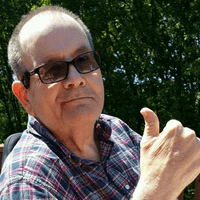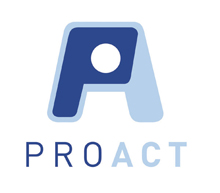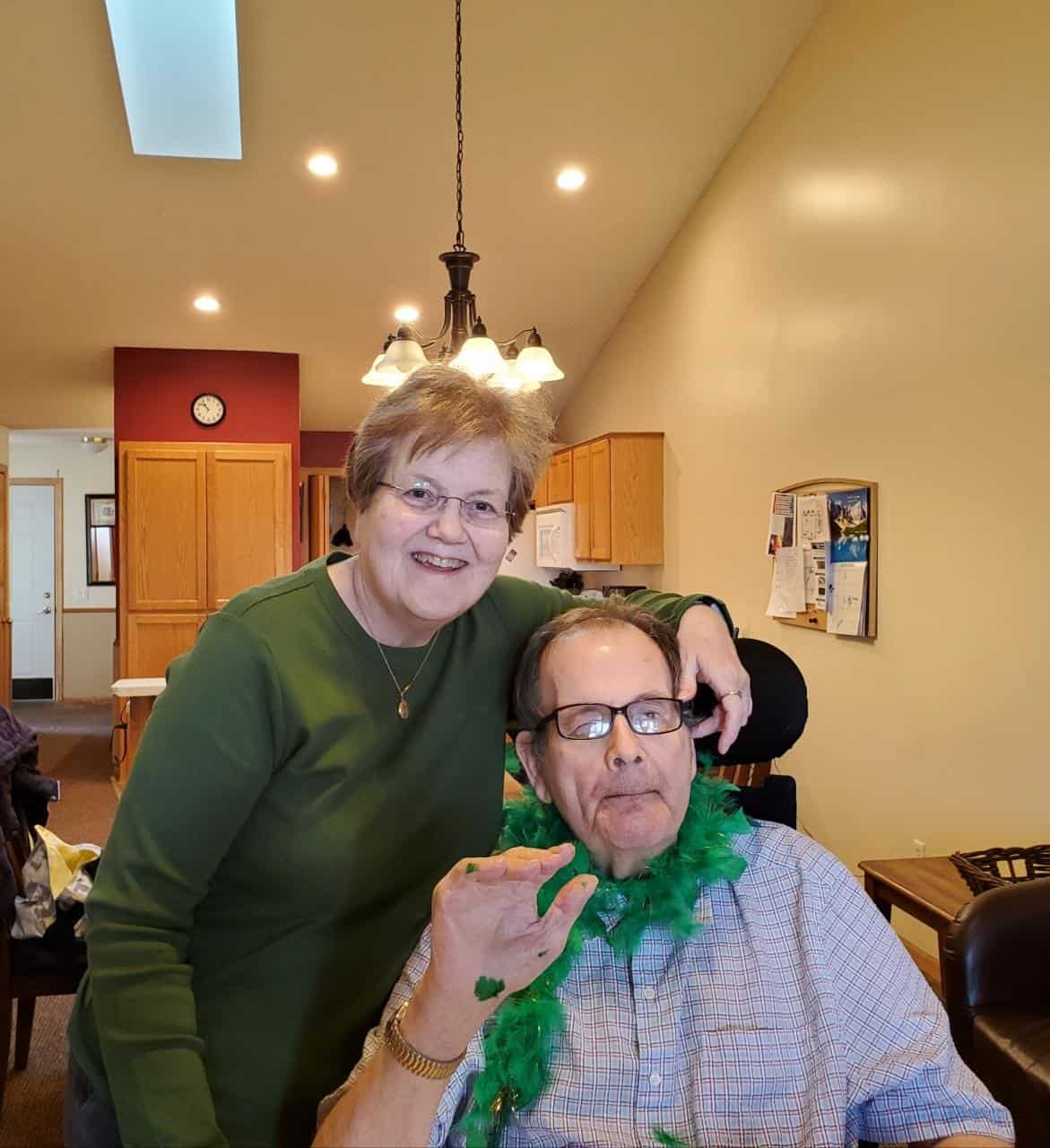Ed Lane did not want to retire. His passion in life was work, and ProAct in Eagan was where he did it.
The 72-year-old was having health issues in January, and his sister and guardian, Peggy Lane, faced a mounting challenge. It was time for Ed to stop working. How would she convince him?
Before his brain injury in 1985, Ed painted commercial buildings and ran a business.
“He really did not want to be gone,” said Peggy. “In fact, I lied to him and said you guys (ProAct) were paying him a fabulous pension. The only way he accepted it was when I told him he would make more money on a retirement pension than he would there.”
Work was everything to him
Ed wanted to make money. His sister said that was his whole purpose for being. On the days when ProAct didn’t have work, he was not interested in other activities.

To allow time for healing, a March retirement party at ProAct was scheduled weeks before. It was cut short by the temporary closure due to COVID-19 precautions.
The skills training area was a home away from home for the Adult Day Services (ADS) participant. He worked many different jobs and had a workstation set up for his tasks, his sister explains.
A longtime worker on Smead office products, Ed sorted granola bar boxes, as well. And, there were animal insemination catheters to prep and package. “He really enjoyed that because he would laugh and joke about them,” said Peggy.
ProAct should be open
Doctors appointments in the later years and health issues sometimes delayed his return to work, she said. Even on holidays he wanted to be there. He would complain that ProAct was closed on the day after Thanksgiving. “There was no reason whatsoever to him that you couldn’t open on Friday. It was not a holiday . . . he was something else.”
The siblings would have lunch together there once a month. “It was a good way to spend time with him and a place he loved.” Ed had a routine of showing her what he was working on. “I got to know the staff really well and I liked that.”
It was the factory-like environment that he enjoyed, his sister said. “I don’t think his life would have been as fulfilled and would not have been as long if there was not a place for him to go every day where he felt productive,” she said.
Ed was always enterprising as a painter and business owner until 1985, when he was hit by a truck.
An Air Force veteran and native of West St. Paul, he had taken over his father’s business. Sometimes working seven days a week, Ed often painted industrial buildings. Some of the work had to be done on nights and weekends, when carpenters were not around, explains Peggy.
One of the first, he had to move to Wis.
After the accident, he was one of the first in Minnesota to receive a brain shunt, an experimental procedure at the time, she said.
Since there was nothing in Minnesota for him then, the family moved Ed to a large rehabilitation facility in Wisconsin. Peggy visited him each month in Milwaukee or Madison.
He later worked at a day program in Willmar, then moved back to his native city of West St. Paul, where the family had grown up. “I was grateful we could bring him back here where he had lived,” said Peggy. “We had lived there a long time as kids.”
Peggy had some familiarity with day training programs for people with disabilities, having worked for the Dakota County DAC. It had connections with Owobopte, ProAct’s predecessor, which operated at one time in Lakeville.
The COVID situation and ProAct’s closure didn’t quite compute with Ed, said his sister. He would ask if people missed him there.
Stay home orders cut some things out for him, like bingo, going out to eat, movies and, of course, work. “Sometimes, he would laugh and laugh. He thought I was making that up . . . lying about it,” said Peggy. The process actually helped him to let go of ProAct gradually.
‘Working’ ’til the end
As Ed’s time drew near, Peggy said he would scribble on paper after paper, tearing them from a spiral notebook. He used to write letters, so she asked him if that’s what he was doing. “No, I’m working,” he said. “That’s what he was still doing at the end,” said Peggy.
She joined him at his group home for his last three days and nights. “I was blessed that I got to be with him the whole time at the end,” she said. “It was really good for me, a good parting.”
After some private time with a priest who came to hear his confession and give last rites, Peggy said she had no idea what happened in the conversation.
The priest talked to Peggy afterward. “He told me I should be talking to you. You’re lying to him all the time, why he can’t go to bingo. He loved that.” The sister said he may have been sharing some humor.
Ed Lane, who lived in Apple Valley and passed away on May 16, is survived by his two children, three sisters and five grandchildren. The family also thanked the caring staff at Howry Residential Services and Heritage House, who loved and cared for him for 17 years.


